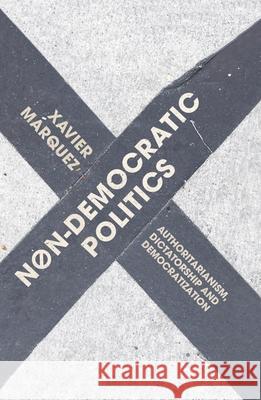Non-Democratic Politics: Authoritarianism, Dictatorship and Democratization » książka
Non-Democratic Politics: Authoritarianism, Dictatorship and Democratization
ISBN-13: 9781137486318 / Angielski / Twarda / 2016 / 304 str.
Non-Democratic Politics: Authoritarianism, Dictatorship and Democratization
ISBN-13: 9781137486318 / Angielski / Twarda / 2016 / 304 str.
(netto: 649,04 VAT: 5%)
Najniższa cena z 30 dni: 644,49
ok. 22 dni roboczych.
Darmowa dostawa!
From the 19th century onwards, there has been a slow transformation in the nature of the norms that regulate political competition and the uses of state power. Monarchies whose legitimating principles appealed to divine sanction have slowly but surely given way to republican regimes normatively grounded in appeals to 'the people.' Ideals of liberty, equality, and solidarity, have gained ground relative to ideals of hierarchy and dependence. Yet while in some ways the world is more democratic now than it has ever been, new forms of non-democracy and new justifications for it have emerged. Drawing on a wide variety of examples and data from around the world, this important new text provides a global account of the history and theory of non-democratic government and explains why today alongside personalistic dictatorships and totalitarian regimes, the vast majority of non-democratic regimes are 'hybrid' regimes, which combine electoral competition with various restrictions on the ability of parties and other social groups to effectively compete for control of the state. The book then moves on to assess the processes through which political regimes change: what accounts for some genuinely democratizing, while others just expand the political competition without producing democracy or else replace one ruler or variety of authoritarianism with another.











